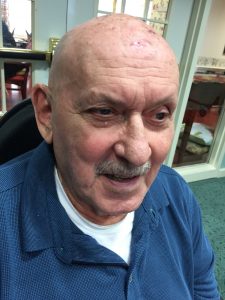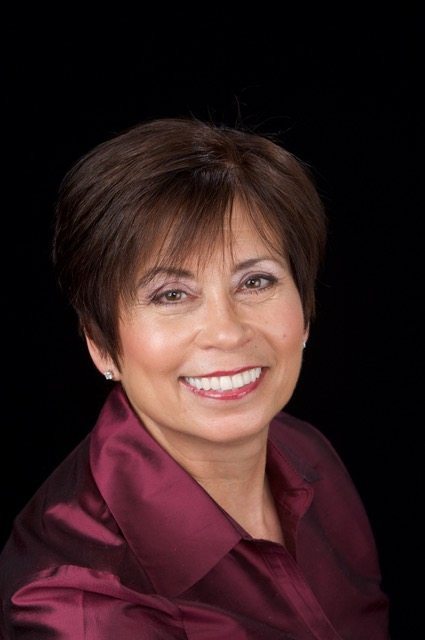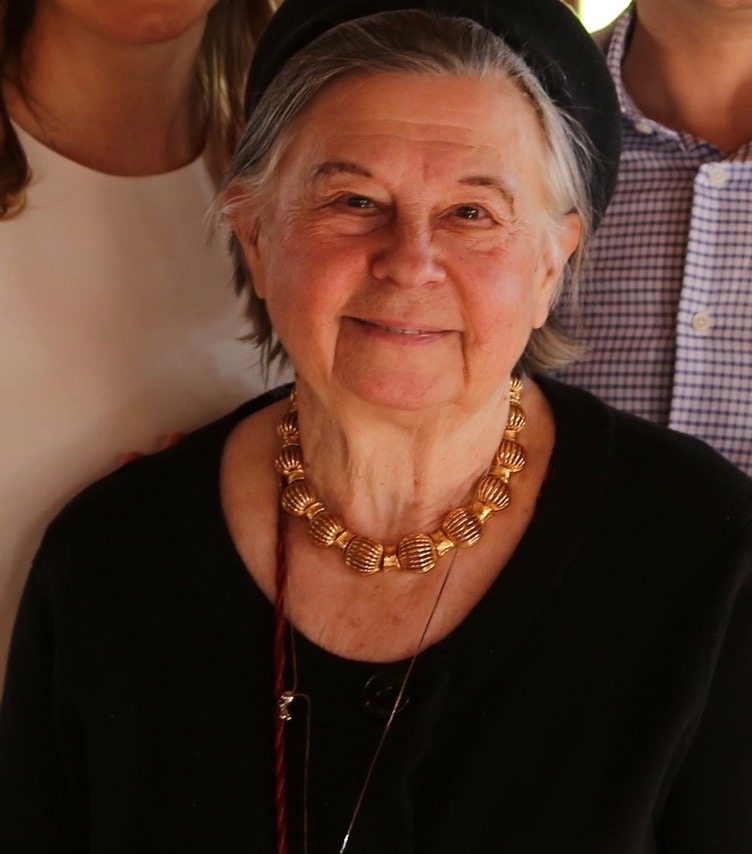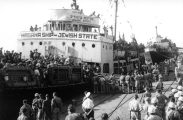- Local Survivor registry
- VICTOR ZELIG
- Local Survivor registry
- VICTOR ZELIG
Survivor Profile

VICTOR
ZELIG
(1929 - 2018)
PRE-WAR NAME:
VICTOR ZELIG
VICTOR ZELIG
PLACE OF BIRTH:
BRASOV, ROMANIA (HUNGARIAN TRANSYLVANIA REGION, AKA ERDELY)
BRASOV, ROMANIA (HUNGARIAN TRANSYLVANIA REGION, AKA ERDELY)
DATE OF BIRTH:
SEPTEMBER 22, 1929
SEPTEMBER 22, 1929
LOCATION(s) BEFORE THE WAR:
BRASOV, TRANSYLVANIA, ROMANIA
BRASOV, TRANSYLVANIA, ROMANIA
LOCATION(s) DURING THE WAR:
BRASOV, TRANSYLVANIA, ROMANIA
BRASOV, TRANSYLVANIA, ROMANIA
STATUS:
SURVIVOR, REFUGEE, DETENTION CAMP, CYPRUS
SURVIVOR, REFUGEE, DETENTION CAMP, CYPRUS
RELATED PERSON(S):
EDITH ZELIG - Spouse,
RUTH ZELIG - Daughter,
LEONARD OPPENHEIMER - Son-in-law,
GIDEON OPPENHEIMER - Grandson,
EMILY OPPENHEIMER - Granddaughter,
LEAH OPPENHEIMER GREAT- - Granddaughter
-
BIOGRAPHY BY nancy gorrell and ruth zelig, daughter
Victor Zelig was born in the large city of Brasov, Romania in the region of Transylvania. Brasov was noted for its mountains, medieval castles and rich oil reserves. Brasov was an industrial city noted for its production of war materials for the German army and its rich oil reserves. Victor’s father was self-employed in the milk business and his mother helped his father daily processing the bottles. He had three brothers and in his interview, describes his family as “small.” Before the war, Victor says the Romanian people had “no problem” with the Jews, but after 1939 and the Nazi invasion and occupation, the German population in Romania “could show their hatred.” From the age of ten, Victor spent his formative years under the anti-Semitism of Nazi occupied Brasov. He was kicked out of his school and had to go to a private school for Jews only that they organized. His two older brothers and father were arrested and sent to labor camps. The synagogues in Brasov were turned into stables for Nazis horses. “We were disgraced.” Victor and his mother remained in Brasov, and Victor was forced to work in the streets, shoveling the manure from the Nazis horses. In 1943 Brasov was completely destroyed by the United States air force attacking Hitler’s source of oil, gasoline and military arms. Victor was only 13 at the time when he had to flee to the outskirts of the city with his mother and father (released from the labor camp because he was too ill) from the bombing. Unfortunately, Victor and his mother and father were twice sent back from the outskirts of the decimated city by the military police only to finally be arrested and sent to prison for not having a permit. Eventually, they were released in the political turmoil that ensued between the Nazis, Russian armies and King Michael of Romania. Victor was 15 when the war ended.
In the following two years he remained in Romania, he went back to school, pursued his education and got involved in the Zionist movement at the time. There he met his future wife, Edith, a young girl from Timisoara, and he became committed to the Zionist cause. He attempted to immigrate to Palestine from Romania through Bulgaria in 1947 along with his future wife, Edith (age 15), and her sister who were travelling with other Jewish teenagers under the auspices of the Jewish agency. They all travelled on the Aliya Bet ship, Haganah, the sister ship of the historic “Exodus.” The British turned the ship around at the port of Haifa, and Victor and all the others were sent to a detention camp on Cyprus. After a year, Victor and the detainees entered Israel. In Israel, after quarantine, Victor and his future wife were sent to the kibbutz, Afikim, in the Jordan Valley near the Galilee. Two years later they were married. Edith was 16 when she entered Israel. She gave birth to her only child, Ruth, when she was 18. The Zelig family lived in Israel from 1948-58. They spoke mostly Hungarian and Hebrew in the home. The family emigrated to South America, settling in Brazil and eventually emigrating to the United States.
Victor passed after a long illness in Somerset, New Jersey on December 20, 2018 at the age of 89.
Editor’s Notes:
Refer to Ruth Zelig in the Voices of the Descendants
Refer to Historical Notes below for Aliyah Bet, Haganah, Historic “Exodus” Cypress Detention; Romanian WWII history.
-
SURVIVOR INTERVIEW:
VICTOR ZELIG INTERVIEW
Date: April 21, 2017
Location: Zelig Residence, Somerset, New Jersey
Interviewer: Nancy Gorrell
Q: Where and when were you born?
I was born on September 9, 1929 in Brasov, Romania, a city in the Transylvania region of Romania.
Q: Describe your family background.
I had a small family—three brothers and my parents. I went to school and I remember the rest of the students had small families too. Generally, my friends were middle class. The city of Brasov was surrounded by mountains. My father was dealing with milk and milk products and was self-employed. My mother helped my father in the business, the two of them together, and the two of them going every day processing the bottles.
Q: Was religious life like for you growing up?
My mother kept the Jewish traditions and my father came from a religious family. We went to synagogue just for the high holy days. My father was a member of the Jewish community. Both my parents were born into religious families. That’s how the Jews survived for a long time in that region. Romanian people didn’t have a problem with the Jews before the war. They liked the Jews, because they saw that the Jewish people do their business and keep their noses clean. But during the war, they could show their hatred.
Q: What was your early schooling?
I went to public school until they kicked me out. When I went to state school, I had to attend religious education by the Jewish community. I got all my education from a technical school—the same as German schools—to learn a trade.
Q:What was the city of Brasov like?
The people in Brasov were not rich. It was a city of 100,000—at that time a lot of people; a very old city. Brasov was an industrial center where the German military received military hardware. The climate was like Denver, Co. Heavy winter. People used to come to the area for skiing; this was good for business.Q: How did the war begin for you?
The country came under German occupation in 1939. The Germans wanted the Romania oil fields, gasoline for their war. They invaded and installed a fascist government. Then, everything stopped. They had something else in mind. Jews can’t get education by the government, so I was told “bring your father tomorrow,” and the principal told him, “no more education for him.” So the parents got together to organize a private school. I continued to get an education, but it wasn’t the same.
Q: Did you witness or experience anti-Semitism?
Everything was turned upside down. The fascists liked to dress up to show their imposing uniforms and guns. I had to wear a yellow star and I had to also wear an armband giving the name of what school I frequented. You walked in the street; they recognized which school you go to. We were marked. The hooligans looked to you to beat you up. The city I was born in was a mixed city with a very large German population. During the WWI it was primarily German. The Germans lived in the very best part of the city. During the war, the Germans in Romania could show hatred.Q: What was it like during the war years?
The fascists kept changing the rules. You never knew what would happen. My two brothers and my father were taken to go to labor camps—it was in one of the castles. I was too young at that age. I had to go to the municipal building and pick up tools and do street cleaning. I picked up the manure from the horses in the streets. They put the young Jewish people with a wheelbarrow and broom, but we still were free to pick a wheelbarrow. I was still living with my mother. I was also continuing the milk business with my mother, doing my father’s work. I delivered the milk bottles and collected the money. I used to go with my father to help him. You know my father was a hard working person.Q: Did Romania ever experience a “Kristallnacht?”
The Germans turned our synagogue into stable. The Germans had horses. The German army liked to parade. In the large city, the Jews were only 10% of the people and there were two synagogues (orthodox and reform). The Germans took over the synagogues for their horses. We were disgraced. They were beautiful synagogues.Q: How did you survive the hardships of the war?
In 1943 Romania switched loyalty from the Germans. The son of our King Michael took over for his father. Michael became a young King in his early 20s. He saved the country. The Russian army overnight crossed Romania. But they were an ill-equipped army.Q: What happened to your family next?
Brasov was destroyed by the American air force. I remember the day because it was early spring Easter Sunday morning, 1943. I was 13 years old. They destroyed the city. The industrial part was completely demolished because they knew the city supplied the German army war materials—bomber planes. The German army was running on Romanian gasoline. Imagine to see over the sky 2000 planes in formation—nothing was left standing. The same time the place we used to live was completely destroyed. My father was home from the labor camp because he was ill. He decided to take the three of us to the outskirts of the city. Because he did that, the local authorities came to us and asked us if we had a permit—to the outskirts? We said “no,” and they forced us back to the city. My father said that wasn’t fair. We went to another side of the city for safety. The second time from the village we were escorted by the military. We were locked up in the police station –my father, my mother and I because we didn’t respect the ordinance designed by the fascist government. We kept asking, “What will happen to us?”Q: How did you and your family get out of prison?
At the same time the Romanian government allowed the Russians to come in, we were allowed to go home—Romania became free from Germany. “It’s time for you to go home—you’re free to go.” That’s what they said to us. My father’s house where I was born was destroyed. First we were evicted, and then to give up the dwelling to the Germans.Q: What happened to your brother?
He was in a Moldavian labor camp digging trenches to stop the Russian invasion. He survived the war the same way we did—“It’s time for you to go home. You’re free to go.” To go to what?Q: What happened to you and your family after the war?
I went back to public school. And what happened? A teacher telling to his colleague, “You know that fellow is the brother of the Jew you had in your class.” The anti-Semitism didn’t end. For two more years I lived in Romania to catch up on my education, and then I got caught up in the Zionist movement with the youth in the city.Q: Describe the Zionist movement as you experienced it?
Where there were two Jews, there were three opinions. So I liked what I heard in those meetings and I spoke to myself: “I had enough. The system here won’t change. The whole city is occupied by the Russians. They are not sympathetic to the Jews.” So I left home and went to Palestine. My father said, “You go to a British mandate? You are going to be a white slave.” I went anyway. The rest of my family stayed in Romania.Q: Describe your ordeals trying to get to Palestine?
In I946, I start to go to Palestine. The ships were intercepted by the British. I spent a whole year locked up in Cypress by the British because I tried to enter illegally. The Jews from the West were trying to get Jews in from Bulgaria to a boat in the Black Sea to a ship purchased by a Jewish organization to take Jews to Palestine. The ship (an icebreaker) took about total 2000 young people to Palestine. The British were chasing us all the way from the Black Sea to Palestine.Q: How did you get out of Cypress?
The British were not friends of ours. We had no communication with the rest of the world. The news media came. The British kept us with food and some toilet things. But I was locked up. After one year, the system changed. The UN agreed to create a Jewish State in Palestine. So I went to Israel under the law of return. It was 1948. I was 16. My mother, father and my brothers stayed in Romania.Q What was your life in the new state of Israel?
I lived in Israel from 1948-58. Golda Meir worked very hard to allow young Jews to return to Israel. First we were in quarantine by the British, and then one day we find out were are ready to live in a Kibbutz in the Jordan Valley, near the Galilee. They sent us to Afikim, a whole group of Romanian young people. They educated us in Hebrew. We worked a half-day and then we learned. I remember mortars hitting us from the Arabs in Syria.Q: Where did you meet your wife?
In Romania, in the Zionist movement. We were committed to the Zionist pioneer idea. We went together to Palestine plus her sister. The Jewish organizations looked for anything that floated from Europe to get Jews to Palestine. The ship was “Exit from Europe.” The media called the ship the “Exodus.” We were married in Haifa and had our honeymoon in Afikim. The Zionist detainees from our trip came to our wedding. -
HISTORICAL NOTES:
Romanian History
Romanian forces played a large role during fighting in Ukraine, Bessarabia, Stalingrad, and elsewhere. Romanian troops were responsible for the persecution and massacre of up to 260,000 Jews in Romanian-controlled territories, though most Jews living within Romania survived the harsh conditions. After the tide of war turned against the Axis, Romania was bombed by the Allies from 1943 onwards and invaded by advancing Soviet armies in 1944. With popular support for Romania’s participation in the war faltering and German-Romanian fronts collapsing under Soviet onslaught, King Michael of Romania led a coup d’état, which deposed the Antonescu regime and put Romania on the side of the Allies for the remainder of the war.
* * *
Exodus to Palestine
In 1945, the British reaffirmed the pre-war policy restricting Jewish immigration to Palestine that had been put in place following the influx of a quarter of a million Jews fleeing the rise of Nazism in the 1930s and had been a major cause of the Arab revolt of 1936–1939. The British then prepared a massive naval and military force to turn back the refugees. Over half of 142 voyages were stopped by British patrols, and most intercepted immigrants were sent to internment camps in Cyprus. About 50,000 people ended up in camps, more than 1,600 drowned at sea, and only a few thousand actually entered Palestine by evading the British. Of the 64 vessels that sailed in the Aliya Bet, Exodus 1947 was the largest, carrying 4,515 passengers – the largest-ever number of illegal immigrants to Palestine. Its name and story received a lot of international attention, thanks in no small part to dispatches from American journalist Ruth Gruber. The incident took place near the end of Aliya Bet and towards the end of the British mandate, after which Britain withdrew its forces and the state of Israel was established. Historians say Exodus 1947 helped unify the Jewish community of Palestine and the Holocaust-survivor refugees in Europe as well as significantly deepening international sympathy for the plight of Holocaust survivors and rallying support for the idea of a Jewish state.
-
Sources and Credits:
Credits:
SSBJCC Survivor Registry Interview, April 22, 2017, Interviewer: Nancy Gorrell; Biography by Nancy Gorrell and Ruth Zelig, daughter. Digital historic and family photographs donated by Ruth Zelig





